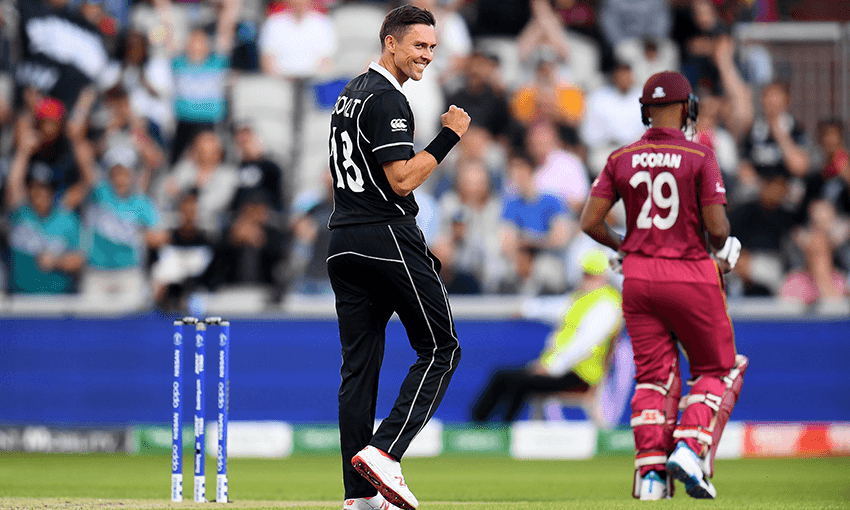The TAB is pulling in millions at the halfway point of the Cricket World Cup. So how much are they paying out? Don Rowe reports.
As the Black Caps slug their way towards the finals of the 2019 Cricket World Cup, the TAB is pulling in record profits from punters back at home. More than 25,000 Kiwis have bet on games that they shouldn’t even be awake to see (Spinoff doyen Simon Day aside), with a full 10% being newcomers to the TAB. At least $11m has been thrown down at the midway point of the tournament, putting it on track to becoming a top five sporting event in TAB history, according to spokesperson Kate Gourdie.
“Given the challenging time zones and the fact that there are less games versus a FIFA World Cup that is an incredible result.”
The TAB’s Super Sixes promotion, which pays out a $6 bonus bet for every six hit – provided you’ve punted $50 on your team – has seen $1.7 million dished out following a litany of slugfests including England’s 25 sixes against Afghanistan. The spanking, lead by Eoin Morgan’s 17 sixes, meant punters pulled $150 each, with one savvy gambler throwing it all on Kane Williamson to win man of the match against South Africa, cashing out for $1200. There have been more than 200 sixes in the tournament thus far, minus the game-winner Trent Boult snatched off the boundary this morning.
The record earnings follow a period of huge expansion by the TAB, which holds a statutory monopoly on sports betting in New Zealand. In 2017 the TAB rebranded under the slogan “Now you’re in the game”, a term criticised by problem gambling advocates who voiced concerns it drew too direct a comparison between punting and participation. The TAB argued it made the organisation less “blokey and impenetrable”.
“We felt it was the right time to reposition the TAB brand to broaden our mainstream appeal for a modern Kiwi audience and to set ourselves up for future growth,” said Simon Jarvis, former head of strategic marketing.
Last year the organisation turned over more than $359m, with a net profit of $145.9m, mostly driven by a 20% increase in active betting accounts. Winston Peters’ Racing Amendment Bill, which requires offshore operators to pay to access New Zealand data as well as allow in-race betting, is currently at select committee. The bill is pitched as a “modernisation” of New Zealand gambling law, bringing it closer in line with international practice.
The TAB has faced increasing criticism from the Problem Gambling Foundation, who questioned why the organisation was exempt from the same laws that control the behaviour of other bodies. Instant deposits, direct marketing and bet matching – all used as justifications to prohibit online gambling under the Gambling Act – are regularly employed by the TAB. Problem gambling levies and betting and gaming machine duties are considered sales taxes by the organisation.
Minister for Internal Affairs Tracey Martin has acknowledged the practices are problematic, saying it would be “part of the discussion” around gambling law reform last year. But aside from a tweak to the Gambling Advertising Code announced following a Spinoff investigation into online “trojan horse” gambling sites, there has been no substantive change.
Last month, SkyCity signed a first-ever deal with a Malta-based gaming company to open New Zealand’s first online casino, despite Martin expressing her “disappointment” the organisation wouldn’t follow the spirit of the law she promised to rework.
The TAB is the only sports betting agency legally allowed to advertise during sporting events in New Zealand, with pre-game walkabouts a common feature of even All Blacks tests. It is required by law to adhere to harm minimisation regulations: training staff and developing systems to identify problem gamblers and cut them off, though the organisation has fallen short in the past.
But the fact remains that for some canny backers, this World Cup is seeing the boys smack it out of the park and all the way into unprecedented punting success.
